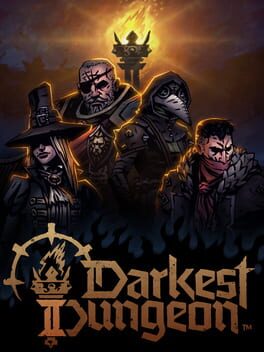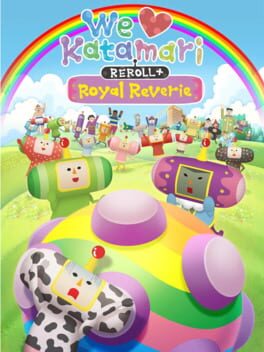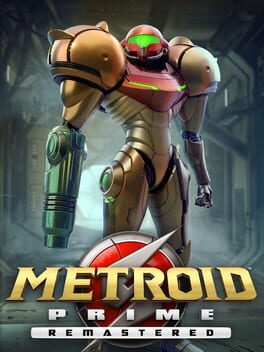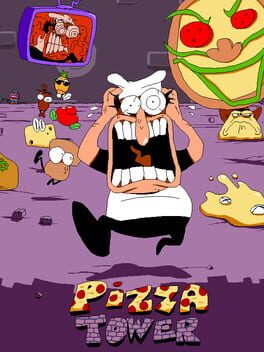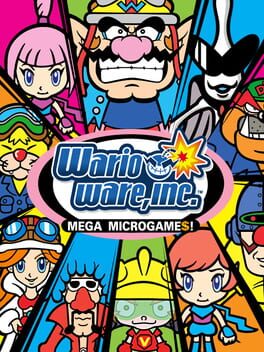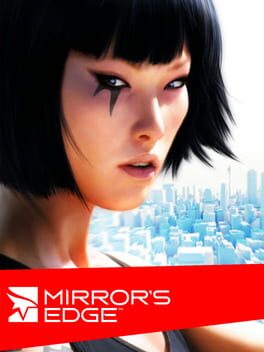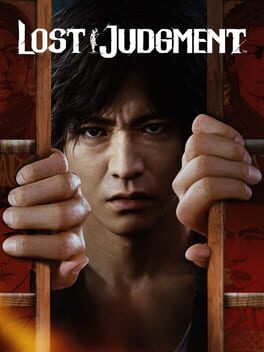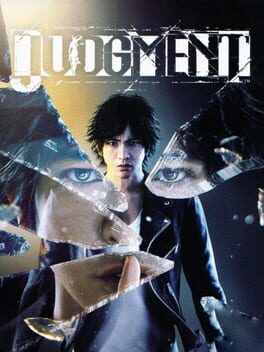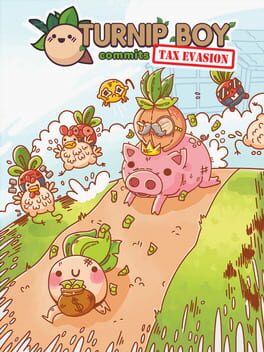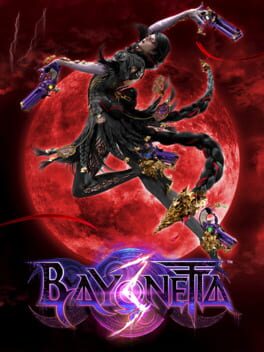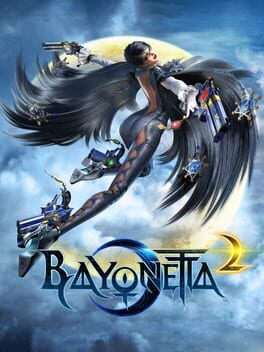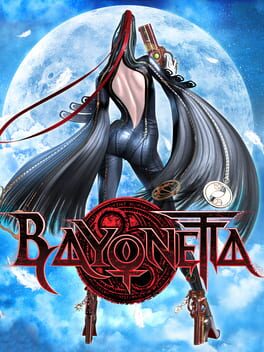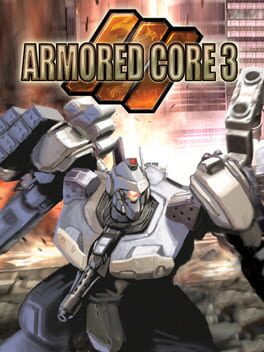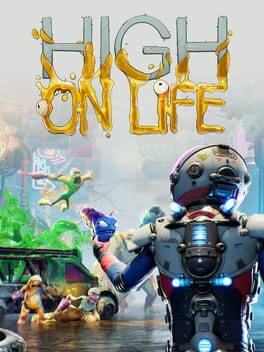KanbaruLover
2021
Imagine everything that on the surface makes you think of Darkest Dungeon but none of the fun you'd get from actually playing it.
The combat is worse, the slow roguelite progression over every failed run feels bad, and the driving is actually terrible.
I'd rather not keep forcing myself to keep playing or hold out for when I finally have enough stuff to make the game fun.
Please stop making games like this that are only fun after you've sunk cost fallacy'd yourself into not being able to remember how much you had to grind to get there.
Darkest Dungeon 1 is a genuinely good and fun party/town management game with a great aesthetic. Darkest Dungeon 2 just feels like it's chasing the roguelite trend with systems that work against wanting to play multiple runs again and again.
Please just go play Darkest Dungeon, this ain't it chief.
The combat is worse, the slow roguelite progression over every failed run feels bad, and the driving is actually terrible.
I'd rather not keep forcing myself to keep playing or hold out for when I finally have enough stuff to make the game fun.
Please stop making games like this that are only fun after you've sunk cost fallacy'd yourself into not being able to remember how much you had to grind to get there.
Darkest Dungeon 1 is a genuinely good and fun party/town management game with a great aesthetic. Darkest Dungeon 2 just feels like it's chasing the roguelite trend with systems that work against wanting to play multiple runs again and again.
Please just go play Darkest Dungeon, this ain't it chief.
Katamari Damacy in recent years has become one of my favorite video games of all time. It's hard to find a game like it that lets you just have such a wonderful time just rolling everything up into a giant ball while listening to an incredible soundtrack. We Love Katamari is fascinating in that it's one of those meta sequels where I don't think anyone ever expected Damacy to take off quite like it did. In a sense, We Love Katamari is a sequel that was made for everyone that is literally saying "we love Katamari". That love is then expressed throughout the games narrative of fulfilling requests of fans that just think the Prince and the King of All Cosmos are just the coolest guys in the world.
That being said, I'm not sure I can rate We Love Katamari as high as Katamari Damacy just because it doesn't feel like it's doing a whole lot more that Damacy had already set the foundation for. It's a short game just like Damacy, and it does have it's very own original soundtrack and new stages, but otherwise it doesn't bring very much to the "rolling up a giant ball full of stuff" category of gameplay. That's not to say the game isn't fun, but the most I felt like it did new was have more gimmick stages where your clear conditions are to have a certain amount or types of items in your katamari.
I did still really enjoy my time with We Love Katamari, and I do think its goal as a sequel wasn't so much to reinvent the wheel, or in this case the katamari. More so I think this was just an excuse to give fans more of Katamari Damacy, as it feels more like an extension of Damacy rather than it's own game. I believe both games these days are probably best enjoyed when played back to back, and I'm very happy to have both of them easily attainable on multiple platforms for people to enjoy. There really aren't any other games like these and I still derive a great amount of joy just rolling up a big ball after a hard day at work. Recommended!
That being said, I'm not sure I can rate We Love Katamari as high as Katamari Damacy just because it doesn't feel like it's doing a whole lot more that Damacy had already set the foundation for. It's a short game just like Damacy, and it does have it's very own original soundtrack and new stages, but otherwise it doesn't bring very much to the "rolling up a giant ball full of stuff" category of gameplay. That's not to say the game isn't fun, but the most I felt like it did new was have more gimmick stages where your clear conditions are to have a certain amount or types of items in your katamari.
I did still really enjoy my time with We Love Katamari, and I do think its goal as a sequel wasn't so much to reinvent the wheel, or in this case the katamari. More so I think this was just an excuse to give fans more of Katamari Damacy, as it feels more like an extension of Damacy rather than it's own game. I believe both games these days are probably best enjoyed when played back to back, and I'm very happy to have both of them easily attainable on multiple platforms for people to enjoy. There really aren't any other games like these and I still derive a great amount of joy just rolling up a big ball after a hard day at work. Recommended!
I originally played Metroid Prime for the GameCube when I was much younger. I never finished it, and remember only making it as far as Phendrana Drifts before I became too frustrated at not knowing where to go, where I then proceeded to put the game down and never pick it back up. Today I have finished Metroid Prime Remastered to make up for my impatience in my youth, and I come away from it thinking, "Yeah, I'd say dropping it over that was pretty justified."
I'd wager most of the appeal for Metroid Prime comes from the feeling you get of being a space adventurer on an unknown planet. After all, Samus Aran is a fantastic character to play as in Metroid and most games don't feel quite as alien in it's aesthetic in quite the same way as Metroid. In Metroid Prime, you're never pointed to go in any direction, only ever trusting your map, data logs, and memory for points of interest along your journey. The game definitely had that affect on me for most of the game, though putting the game down for any long amount of time would result in me needing to spend several minutes going back over the map screen and remembering those points of interests. Like the 2D games, you're given a good amount of freedom to look around an area even with your limited abilities at the beginning of the game, always keeping note to come back through later when you might have a new ability that opens up more of the area.
That's more or less the gameplay loop for Metroid Prime; comb through zones to find new abilities until you finally have all of your arsenal to beat the game (wow it's like a Metroid game or something). The only real issue I take with the gameplay loop in this game is, most of the time, you can never judge if a new location you can access is progress towards a new ability or a dead end. The game has a strange way of giving you an incredibly valuable ability in one room, showing you a door that ability can now open, only for you to hit a dead end immediately upon exploring it. Now is there anything so wrong about finding more rooms that require more abilities to unlock? No, especially in a series that relishes in making the player backtrack as frequently as Metroid does. I guess I just found myself becoming annoyed whenever I found myself creating more mental checkmarks of zones in the future rather than being able to knock out a good chunk of an area when getting a new ability.
Combat is... fine... until it's not. Enemies early on are very simple; you shoot small enemies with your laser beam and big enemies get the missiles. It does the job and can be pretty fun at times, even if most harder enemies before the middle of the game start having weak points only on their back. Later on, you also start to unlock different beam weapons, each one serving a separate use and unique interactions with puzzles and enemies. But where the combat goes from being fine to not fine is once they start introducing enemies that can only be damaged by specific weapon types.
This starts out harmless enough with enemies that are more like stage hazards requiring a specific laser beam weapon to destroy them. But this problem caps once you hit an area where suddenly most enemies in the zone are now color coded, requiring the weapon type that their color matches with to deal any damage. What's worse is these enemies aren't even unique from one another, they all still have the same basic "run around, shoot you at a distance, melee if you get close" move set, no matter which color they are. I can see what they might've been going for, having enemies act as a sort of light puzzle to solve in each room, but this made me end up opting out of combat entirely when needing to backtrack through those rooms later on.
I'll be keeping this review spoiler free as usual (unless revealing gameplay elements like this is a spoiler, in which case, my bad), but just know that I hated this inclusion in the game and it never gets any better from that point onwards; if anything it gets worse.
Overall I'd say that, for most things I enjoyed in this game, it always came with their own frustrations. I love the moment in a Metroid game where you finally have your full arsenal of weapons and moves, but I can't say I enjoyed the frustration of constantly hitting dead ends before getting to that point in this one. Combat in 3D compared to the 2D games still feels like what you'd expect, but falls on it's face later on in a poor attempt at trying to mix things up for the end game. I'd say the positives mostly outweigh the negatives and at least the problem of not knowing where dead ends are is a feeling I wouldn't have again on another replay. I consider myself a fairly big Metroid fan and I'd slept on this game for quite some time, always hearing that it was a beloved classic and a great example of transitioning a style of play from 2D to 3D. I'd say I'd agree with that sentiment, though a part of me does think the game lives in such a positive space because it's well beloved for it's sci-fi aesthetic and impressive graphical fidelity for the time. Everyone likes to remember their favorite childhood game being just as good as they remembered. But Metroid Prime is definitely a game where you have to eventually take off your red rose tinted glasses at times; that enemy you're looking at is purple, after all.
I'd wager most of the appeal for Metroid Prime comes from the feeling you get of being a space adventurer on an unknown planet. After all, Samus Aran is a fantastic character to play as in Metroid and most games don't feel quite as alien in it's aesthetic in quite the same way as Metroid. In Metroid Prime, you're never pointed to go in any direction, only ever trusting your map, data logs, and memory for points of interest along your journey. The game definitely had that affect on me for most of the game, though putting the game down for any long amount of time would result in me needing to spend several minutes going back over the map screen and remembering those points of interests. Like the 2D games, you're given a good amount of freedom to look around an area even with your limited abilities at the beginning of the game, always keeping note to come back through later when you might have a new ability that opens up more of the area.
That's more or less the gameplay loop for Metroid Prime; comb through zones to find new abilities until you finally have all of your arsenal to beat the game (wow it's like a Metroid game or something). The only real issue I take with the gameplay loop in this game is, most of the time, you can never judge if a new location you can access is progress towards a new ability or a dead end. The game has a strange way of giving you an incredibly valuable ability in one room, showing you a door that ability can now open, only for you to hit a dead end immediately upon exploring it. Now is there anything so wrong about finding more rooms that require more abilities to unlock? No, especially in a series that relishes in making the player backtrack as frequently as Metroid does. I guess I just found myself becoming annoyed whenever I found myself creating more mental checkmarks of zones in the future rather than being able to knock out a good chunk of an area when getting a new ability.
Combat is... fine... until it's not. Enemies early on are very simple; you shoot small enemies with your laser beam and big enemies get the missiles. It does the job and can be pretty fun at times, even if most harder enemies before the middle of the game start having weak points only on their back. Later on, you also start to unlock different beam weapons, each one serving a separate use and unique interactions with puzzles and enemies. But where the combat goes from being fine to not fine is once they start introducing enemies that can only be damaged by specific weapon types.
This starts out harmless enough with enemies that are more like stage hazards requiring a specific laser beam weapon to destroy them. But this problem caps once you hit an area where suddenly most enemies in the zone are now color coded, requiring the weapon type that their color matches with to deal any damage. What's worse is these enemies aren't even unique from one another, they all still have the same basic "run around, shoot you at a distance, melee if you get close" move set, no matter which color they are. I can see what they might've been going for, having enemies act as a sort of light puzzle to solve in each room, but this made me end up opting out of combat entirely when needing to backtrack through those rooms later on.
I'll be keeping this review spoiler free as usual (unless revealing gameplay elements like this is a spoiler, in which case, my bad), but just know that I hated this inclusion in the game and it never gets any better from that point onwards; if anything it gets worse.
Overall I'd say that, for most things I enjoyed in this game, it always came with their own frustrations. I love the moment in a Metroid game where you finally have your full arsenal of weapons and moves, but I can't say I enjoyed the frustration of constantly hitting dead ends before getting to that point in this one. Combat in 3D compared to the 2D games still feels like what you'd expect, but falls on it's face later on in a poor attempt at trying to mix things up for the end game. I'd say the positives mostly outweigh the negatives and at least the problem of not knowing where dead ends are is a feeling I wouldn't have again on another replay. I consider myself a fairly big Metroid fan and I'd slept on this game for quite some time, always hearing that it was a beloved classic and a great example of transitioning a style of play from 2D to 3D. I'd say I'd agree with that sentiment, though a part of me does think the game lives in such a positive space because it's well beloved for it's sci-fi aesthetic and impressive graphical fidelity for the time. Everyone likes to remember their favorite childhood game being just as good as they remembered. But Metroid Prime is definitely a game where you have to eventually take off your red rose tinted glasses at times; that enemy you're looking at is purple, after all.
2023
♪ When Peppino runs and cries,
And you're never out of tries,
That's amore~ ♪
This game is incredible. Straight from the oven of a person who thought "What if I made my own Wario Land 4 and made it just as insane?" If you're familiar at all with Wario Land 4, you'll immediately be able to draw comparisons, from the abstract level design and art style to the insanely well made soundtrack.
You play as Peppino, a pizza shop owner who must now climb the titular Pizza Tower so that Pizza Face, an evil Pizza, doesn't blow Peppino's pizza shop to smithereens. If the word "pizza" doesn't start sounding strange to you now, give it some time, I'm not done using it yet.
The gameplay loop for Pizza Tower is simple; go through stages in each zone, collect enough cash in each zone to unlock the boss door, fight the area boss, repeat. The real sauce of this game is how each stage has you frantically searching for ingredients that net you a total amount of cash on level completion. Peppino's moveset is oozing with flavor, having a sprint, bash, wall climb, ground pound, dive, and even a Metroid shine spark because, yes, every 2D game needs a Metroid shine spark. This doesn't even count some stages that have gimmick abilities like spicy breath, rockets you can fly on, bubbles, and so much more. These stage specific abilities help in giving each stage their own identity among the various zones, with some abilities being as absurd as a flying chicken companion based on an old 3D PS1 platformer, to an entirely contained mini golf course.
Peppino can't die from normal damage in regular stages, instead only losing points that go towards your total score at the end of any given stage. Your incentive to not get hit all comes from how well you want to be scored, the lowest rank being an undercooked D, and the highest being a well baked P. This way the game can draw in both types of motivated players; ones who want to improve on every playthrough and those who just want to play the game as is.
No matter what type of player you are, you'll probably end up blasting through each stage at breakneck speeds. Stages are built with this high speed of play in mind, including ramps to maintain your momentum and enemies being helpless to your fastest sprint speed. The speed you move at is key because, once you make it to the end of every stage, the game has you run all the way back through it to the entrance before the timer ticks down. At this point in the stage, new paths are opened that were originally walled off, incentivizing those who feel so bold to now explore more of the level before Pizza Face wakes up and kills the player for real.
So that's gameplay. And it's great, but the real special sauce to this pizza is the presentation. Pizza Tower is one of the most manic looking episodes of a game I've ever seen. So much time and love was put into every animation present throughout the entire game. Peppino has a wide range of expressions, from his timid idle animation to his deranged full sprint speed. The humor and expressiveness in this game feels like it's inspired from older cartoons like Ren & Stimpy or Rocko's Modern Life, with the anatomy of Peppino, his allies, and enemies all incredibly exaggerated for comedic affect, even down to the audio.
The music captures that Wario Land 4 feeling almost perfectly. There aren't as many slower tracks through out Pizza Tower, but the ones that go hard and fast are incredible. Many of the samples used throughout are the same used through out much of Wario Land 4, and the core theme, "It's Pizza Time", always delivers that rush of adrenaline when sprinting back to the entrance of a stage before time is up. I really can't praise the music enough. All stage themes fit their aesthetic perfectly, always lending to create that extra feeling that every stage was crafted with every key detail in mind.
Pizza Tower truly is a supreme example of the type of game that can be crafted through the inspiration of another. Since it's time, Wario Land 4 hasn't really been topped in how it shook up the 2D platforming genre. And while Pizza Tower takes much of the way Wario Land 4 is structured, it never stops being it's own game that derives a similar yet separate enjoyment all together. I'm so glad the developers could deliver such a flavorful deep dish of a game. This is one mom and pop's that I'll be coming back to several more times, even after finishing my first slice. Highly recommended!
And you're never out of tries,
That's amore~ ♪
This game is incredible. Straight from the oven of a person who thought "What if I made my own Wario Land 4 and made it just as insane?" If you're familiar at all with Wario Land 4, you'll immediately be able to draw comparisons, from the abstract level design and art style to the insanely well made soundtrack.
You play as Peppino, a pizza shop owner who must now climb the titular Pizza Tower so that Pizza Face, an evil Pizza, doesn't blow Peppino's pizza shop to smithereens. If the word "pizza" doesn't start sounding strange to you now, give it some time, I'm not done using it yet.
The gameplay loop for Pizza Tower is simple; go through stages in each zone, collect enough cash in each zone to unlock the boss door, fight the area boss, repeat. The real sauce of this game is how each stage has you frantically searching for ingredients that net you a total amount of cash on level completion. Peppino's moveset is oozing with flavor, having a sprint, bash, wall climb, ground pound, dive, and even a Metroid shine spark because, yes, every 2D game needs a Metroid shine spark. This doesn't even count some stages that have gimmick abilities like spicy breath, rockets you can fly on, bubbles, and so much more. These stage specific abilities help in giving each stage their own identity among the various zones, with some abilities being as absurd as a flying chicken companion based on an old 3D PS1 platformer, to an entirely contained mini golf course.
Peppino can't die from normal damage in regular stages, instead only losing points that go towards your total score at the end of any given stage. Your incentive to not get hit all comes from how well you want to be scored, the lowest rank being an undercooked D, and the highest being a well baked P. This way the game can draw in both types of motivated players; ones who want to improve on every playthrough and those who just want to play the game as is.
No matter what type of player you are, you'll probably end up blasting through each stage at breakneck speeds. Stages are built with this high speed of play in mind, including ramps to maintain your momentum and enemies being helpless to your fastest sprint speed. The speed you move at is key because, once you make it to the end of every stage, the game has you run all the way back through it to the entrance before the timer ticks down. At this point in the stage, new paths are opened that were originally walled off, incentivizing those who feel so bold to now explore more of the level before Pizza Face wakes up and kills the player for real.
So that's gameplay. And it's great, but the real special sauce to this pizza is the presentation. Pizza Tower is one of the most manic looking episodes of a game I've ever seen. So much time and love was put into every animation present throughout the entire game. Peppino has a wide range of expressions, from his timid idle animation to his deranged full sprint speed. The humor and expressiveness in this game feels like it's inspired from older cartoons like Ren & Stimpy or Rocko's Modern Life, with the anatomy of Peppino, his allies, and enemies all incredibly exaggerated for comedic affect, even down to the audio.
The music captures that Wario Land 4 feeling almost perfectly. There aren't as many slower tracks through out Pizza Tower, but the ones that go hard and fast are incredible. Many of the samples used throughout are the same used through out much of Wario Land 4, and the core theme, "It's Pizza Time", always delivers that rush of adrenaline when sprinting back to the entrance of a stage before time is up. I really can't praise the music enough. All stage themes fit their aesthetic perfectly, always lending to create that extra feeling that every stage was crafted with every key detail in mind.
Pizza Tower truly is a supreme example of the type of game that can be crafted through the inspiration of another. Since it's time, Wario Land 4 hasn't really been topped in how it shook up the 2D platforming genre. And while Pizza Tower takes much of the way Wario Land 4 is structured, it never stops being it's own game that derives a similar yet separate enjoyment all together. I'm so glad the developers could deliver such a flavorful deep dish of a game. This is one mom and pop's that I'll be coming back to several more times, even after finishing my first slice. Highly recommended!
I've always been a big fan of the Wario Land series from afar, peaking with one of the most fascinating 2D platformers ever made, Wario Land 4. Seeing Wario take on his own unique identity from Mario was always so fascinating to me. Rather than just having another run and jump man, Wario has always felt like you could do anything with him that isn't that and it would make sense, no matter how absurd.
WarioWare, Inc. is just that; expanding on what the identity of Wario games are and even establishing an entirely distinct cast from the Mushroom Kingdom crew that we're used to today. And rather than being a platformer this time around, we get to play a large array of microgames that Wario has cooked up in another attempt to get filthy rich, poking fun at the hype drummed up for video games at the time.
Now nothing about these microgames really stands out on their own. Individually, they're very simplistic and have easy clear conditions. The greatness of this game comes from the format of each stage, always introducing several new microgames that are all thrown at you to complete in quick succession. Your ability process a quick verb prompt and then respond to a brand new screen with a microgame is what's really tested here; awareness and reaction time is key. In a short amount of time, you'll see so many varying microgames, all with their own absurdist visual styles, which then caps out every stage with a slightly longer boss stage. Ultimately, this creates a game that is truly greater than the sum of it's parts.
I should also mention that I love the extended cast that they've created here. Each one has their own unique personality that, while Wario isn't really around them, you can see how each of them can inhabit a world with a money hungry lunatic like Wario. Whether it be Mona outrunning the police to get to her job at the gelato shop, Kat and Ana saving you, the player (who is a shogun), from a malicious yokai, or Dr. Crygor trying not to shit his pants, I loved all these scenarios and how they fleshed out this new cast, and I look forward to seeing the extended cast in later entries.
I also want to give a big shout out to the composer, Ryoji Yoshitomi. His style is immediately identifiable if you're familiar with the soundtrack of Wario Land 4, using a mix of good and varied vocal samples and audio warbles that gave Wario Land 4 such a strong audio identity and taking full advantage of the Game Boy Advance. There's so much that goes into the soundtracks for both of these games that a person like me can really dig into, but I'll keep it brief here.
I just freaking loved this game. Once I picked it up, I barely wanted to put it down. And the modes you get to play later that let you test the boss stages at their hardest difficulty or just seeing how far you can get in an endless series of microgames is a treat. I'm glad they kept this series for as long as they did, and it looks like there's still some love for it at Nintendo at the time that I'm writing this. I hope to play the later games some time in the future and hope they can deliver a similar feeling I got from this one. Highly recommended!
WarioWare, Inc. is just that; expanding on what the identity of Wario games are and even establishing an entirely distinct cast from the Mushroom Kingdom crew that we're used to today. And rather than being a platformer this time around, we get to play a large array of microgames that Wario has cooked up in another attempt to get filthy rich, poking fun at the hype drummed up for video games at the time.
Now nothing about these microgames really stands out on their own. Individually, they're very simplistic and have easy clear conditions. The greatness of this game comes from the format of each stage, always introducing several new microgames that are all thrown at you to complete in quick succession. Your ability process a quick verb prompt and then respond to a brand new screen with a microgame is what's really tested here; awareness and reaction time is key. In a short amount of time, you'll see so many varying microgames, all with their own absurdist visual styles, which then caps out every stage with a slightly longer boss stage. Ultimately, this creates a game that is truly greater than the sum of it's parts.
I should also mention that I love the extended cast that they've created here. Each one has their own unique personality that, while Wario isn't really around them, you can see how each of them can inhabit a world with a money hungry lunatic like Wario. Whether it be Mona outrunning the police to get to her job at the gelato shop, Kat and Ana saving you, the player (who is a shogun), from a malicious yokai, or Dr. Crygor trying not to shit his pants, I loved all these scenarios and how they fleshed out this new cast, and I look forward to seeing the extended cast in later entries.
I also want to give a big shout out to the composer, Ryoji Yoshitomi. His style is immediately identifiable if you're familiar with the soundtrack of Wario Land 4, using a mix of good and varied vocal samples and audio warbles that gave Wario Land 4 such a strong audio identity and taking full advantage of the Game Boy Advance. There's so much that goes into the soundtracks for both of these games that a person like me can really dig into, but I'll keep it brief here.
I just freaking loved this game. Once I picked it up, I barely wanted to put it down. And the modes you get to play later that let you test the boss stages at their hardest difficulty or just seeing how far you can get in an endless series of microgames is a treat. I'm glad they kept this series for as long as they did, and it looks like there's still some love for it at Nintendo at the time that I'm writing this. I hope to play the later games some time in the future and hope they can deliver a similar feeling I got from this one. Highly recommended!
2008
Not a terrible lot to say about this game. Surprisingly solid game for a genre that wasn't fully represented for the time it came out in. The running and jumping feel good, I never got tired of running on walls and jumping off them to get to other ledges. Climbing pipes is kinda lame became it slows you down so much, so less of those would've been nice in more of the inside levels.
Combat's not great. I opted to not ever fire a gun at enemies and, while it added a bit more challenge, I found punching and parrying enemies pretty unsatisfying. I get the feeling gun combat is probably looked down upon, but you're really not missing out if you just want to blast through the mandatory fight sequences. And if those sequences aren't mandatory and you can totally run past all of them, please forgive me for being bad.
One thing I did really appreciate was how minimal the UI was for the entire game. No health bar, no objective markers, and just a tiny reticle that you can even toggle in the options. For a game about getting from point A to point B while weaving around jump puzzles in first person, it's surprising to see it not have obnoxious "go here" markers or a type of Crazy Taxi arrow pointing where to go. I know they mark much of the interactables with bright red, but I like the excuse that it's the runner's intuition and it matches the aesthetic pretty well. The game's use of a color is pretty damn good, and the game still looks pretty good visually as well.
Wow, I had more to say than I thought. Overall a pretty fun game, if not just a little half baked feeling in some departments. It's not terribly long either, for better or for worse. You can definitely beat it in an afternoon if you felt so inclined. Would recommend!
Combat's not great. I opted to not ever fire a gun at enemies and, while it added a bit more challenge, I found punching and parrying enemies pretty unsatisfying. I get the feeling gun combat is probably looked down upon, but you're really not missing out if you just want to blast through the mandatory fight sequences. And if those sequences aren't mandatory and you can totally run past all of them, please forgive me for being bad.
One thing I did really appreciate was how minimal the UI was for the entire game. No health bar, no objective markers, and just a tiny reticle that you can even toggle in the options. For a game about getting from point A to point B while weaving around jump puzzles in first person, it's surprising to see it not have obnoxious "go here" markers or a type of Crazy Taxi arrow pointing where to go. I know they mark much of the interactables with bright red, but I like the excuse that it's the runner's intuition and it matches the aesthetic pretty well. The game's use of a color is pretty damn good, and the game still looks pretty good visually as well.
Wow, I had more to say than I thought. Overall a pretty fun game, if not just a little half baked feeling in some departments. It's not terribly long either, for better or for worse. You can definitely beat it in an afternoon if you felt so inclined. Would recommend!
2021
The half star this game gets over Judgment is for it feeling like an improved version of that game. But then that begs the question, is this an improved version... of itself? This might end up being one of my longer reviews, so skip to the end if you want my short summary of how I felt overall. But I'll be going over a couple different areas here. Starting with...
The Combat:
It feels great! Maybe the best the combat has felt for an individual character since Yakuza 0 introduced multiple styles. Snake style is a great addition, and one I feel like they included with the mercy EX moves for all the children you'd be brutalizing using any other style. Not that that's stopping you from smashing kids faces into the pavement. Crane and Tiger style also feel like they got a good revamp while keeping their individual strengths.
Gone are mortal wounds in exchange for tougher enemies having big charge moves that just hurt a lot. But the addition of the mortal counter system feels great, giving you more reason to stay and dodge rather than just run from the high damage moves.
The last couple encounters and final bosses all felt fantastic. They did a good job in the story to give them a nice level of emotional impact for their fights as well. Never has fighting a huge group of enemies felt quite so satisfying either with how long you can string your combos and how quickly you can change styles without breaking your flow.
The combat does a lot of heavy lifting for this game, so let's now move on to...
The Not Combat:
Modern Yakuza games have been polarizing with their split focus between great combat/narrative and side activities for the Japan simulator they've become. I regret to report that Lost Judgment does not solve this problem in any big way.
I will be fair and say Lost Judgment, unlike Judgment, did not have any half hour long diverging side quests because someone in the main story said to wait for a phone call.
However the game does try to get you invested in the detective agency by peppering in new devices to help solve mostly side quest related mysteries sprinkled throughout your playtime. I don't have nearly enough time to do even most of these side quests, and was shocked when I saw I hadn't even completed 10% of them before seeing my end of game report card. I don't have an exact number, but it was somewhere upwards of 700.
Most of the mandatory slow tailing and chase sequences are gone this time around, but the new sneaking section they've included was never something I looked forward to. That and what I can only assume is trend chasing a bit too late with Uncharted style ledge climbing and parkour with observation minigames to look for the cum stains on pipes and ledges you can climb on. I'm never sure why these sections are included in games like these. The combat speaks for itself as the highlight of the series. One section near the end had a ledge climbing sequence that, if failed, you fight a room full of guys. But is it really a failure if my punishment is playing the part of the game I enjoy the most?
Lost Judgment is just so full of stuff, but never much stuff that makes me want to drag myself away from the main narrative that I end up getting very invested in. The side quests and club activities at the school were definitely some of my favorites, but by the time the story was really ramping up and more quests were unlocking, I didn't want to derail myself too hard.
The not combat stuff in Lost Judgment isn't bad so much as it never feels like much else besides bloat to what's become some kind of sicko forever game of doing side quests, crafting items and gear, and checking off everything on what never stops feeling like just a big To Do list. I suppose it's a blessing then that Lost Judgment has a good...
Story:
I'll try my best to not spoil anything major in here, but overall I thought the story was pretty damn good this time around. What starts as a dive into the daily lives of high schoolers and combatting bullying becomes a look into the lives of people that are deeply affected by victims of bullying on a much greater scale. Our main characters have to uncover a deep conspiracy into what happened to a recently deceased bully, someone that I don't imagine most players feel any great mourning for.
That's the short of it without spoiling anything, but an important theme throughout the story is that the law can end up being a very flawed system. Those who feel the ramifications of bullying the hardest can feel stifled that bullies get off too easily by ruining the lives of others. But is taking justice into your own hands the right thing to do when you don't consider the consequences?
I really dug a lot of the new characters they introduced, and it was nice to see some of the returning cast. The villains this time around are also an incredible step up from the previous game, but them also being very prominent throughout the story helped to establish them as real threats that I could still enjoy.
The story was pretty touch and go for me a decent amount of my play time, but I did come around to the overarching message the game was trying to convey. You could say I had moments of...
Lost Judgment in Conclusion:
The game's fun! Most of my complaints about Judgment are either very sparsely present or gone entirely. Yet like any new entry that has to create more new content, that content feels much more shallow in exchange. Must we now wait for Judgment 3 to improve on those systems, only to create a similar situation? I say probably, but Johnny's says no.
I made this review longer than usual to also try and say that I think the Yakuza magic is starting to die in me again. Yakuza 7 brought back the spark when I saw how much the series could change and still keep everything I've grown to love. But entries like Lost Judgment cloud my vision of this series, showing that you really can fill a game with too much stuff to do. I don't want this combat to just disappear after this game because I think it's just that refined now. But with Ichiban and his JRPG pals being the new mainline focus and side games like these still having the same not combat problems, I'm not sure if I'll be so terribly excited for the future.
That is to say, I am definitely going to be playing that Ishin remake because me likey the samurai Kazuma Kiryu game, and I've been clamoring for this game for years.
The Combat:
It feels great! Maybe the best the combat has felt for an individual character since Yakuza 0 introduced multiple styles. Snake style is a great addition, and one I feel like they included with the mercy EX moves for all the children you'd be brutalizing using any other style. Not that that's stopping you from smashing kids faces into the pavement. Crane and Tiger style also feel like they got a good revamp while keeping their individual strengths.
Gone are mortal wounds in exchange for tougher enemies having big charge moves that just hurt a lot. But the addition of the mortal counter system feels great, giving you more reason to stay and dodge rather than just run from the high damage moves.
The last couple encounters and final bosses all felt fantastic. They did a good job in the story to give them a nice level of emotional impact for their fights as well. Never has fighting a huge group of enemies felt quite so satisfying either with how long you can string your combos and how quickly you can change styles without breaking your flow.
The combat does a lot of heavy lifting for this game, so let's now move on to...
The Not Combat:
Modern Yakuza games have been polarizing with their split focus between great combat/narrative and side activities for the Japan simulator they've become. I regret to report that Lost Judgment does not solve this problem in any big way.
I will be fair and say Lost Judgment, unlike Judgment, did not have any half hour long diverging side quests because someone in the main story said to wait for a phone call.
However the game does try to get you invested in the detective agency by peppering in new devices to help solve mostly side quest related mysteries sprinkled throughout your playtime. I don't have nearly enough time to do even most of these side quests, and was shocked when I saw I hadn't even completed 10% of them before seeing my end of game report card. I don't have an exact number, but it was somewhere upwards of 700.
Most of the mandatory slow tailing and chase sequences are gone this time around, but the new sneaking section they've included was never something I looked forward to. That and what I can only assume is trend chasing a bit too late with Uncharted style ledge climbing and parkour with observation minigames to look for the cum stains on pipes and ledges you can climb on. I'm never sure why these sections are included in games like these. The combat speaks for itself as the highlight of the series. One section near the end had a ledge climbing sequence that, if failed, you fight a room full of guys. But is it really a failure if my punishment is playing the part of the game I enjoy the most?
Lost Judgment is just so full of stuff, but never much stuff that makes me want to drag myself away from the main narrative that I end up getting very invested in. The side quests and club activities at the school were definitely some of my favorites, but by the time the story was really ramping up and more quests were unlocking, I didn't want to derail myself too hard.
The not combat stuff in Lost Judgment isn't bad so much as it never feels like much else besides bloat to what's become some kind of sicko forever game of doing side quests, crafting items and gear, and checking off everything on what never stops feeling like just a big To Do list. I suppose it's a blessing then that Lost Judgment has a good...
Story:
I'll try my best to not spoil anything major in here, but overall I thought the story was pretty damn good this time around. What starts as a dive into the daily lives of high schoolers and combatting bullying becomes a look into the lives of people that are deeply affected by victims of bullying on a much greater scale. Our main characters have to uncover a deep conspiracy into what happened to a recently deceased bully, someone that I don't imagine most players feel any great mourning for.
That's the short of it without spoiling anything, but an important theme throughout the story is that the law can end up being a very flawed system. Those who feel the ramifications of bullying the hardest can feel stifled that bullies get off too easily by ruining the lives of others. But is taking justice into your own hands the right thing to do when you don't consider the consequences?
I really dug a lot of the new characters they introduced, and it was nice to see some of the returning cast. The villains this time around are also an incredible step up from the previous game, but them also being very prominent throughout the story helped to establish them as real threats that I could still enjoy.
The story was pretty touch and go for me a decent amount of my play time, but I did come around to the overarching message the game was trying to convey. You could say I had moments of...
Lost Judgment in Conclusion:
The game's fun! Most of my complaints about Judgment are either very sparsely present or gone entirely. Yet like any new entry that has to create more new content, that content feels much more shallow in exchange. Must we now wait for Judgment 3 to improve on those systems, only to create a similar situation? I say probably, but Johnny's says no.
I made this review longer than usual to also try and say that I think the Yakuza magic is starting to die in me again. Yakuza 7 brought back the spark when I saw how much the series could change and still keep everything I've grown to love. But entries like Lost Judgment cloud my vision of this series, showing that you really can fill a game with too much stuff to do. I don't want this combat to just disappear after this game because I think it's just that refined now. But with Ichiban and his JRPG pals being the new mainline focus and side games like these still having the same not combat problems, I'm not sure if I'll be so terribly excited for the future.
That is to say, I am definitely going to be playing that Ishin remake because me likey the samurai Kazuma Kiryu game, and I've been clamoring for this game for years.
2018
Judgment feels like the game people describe when saying newer Yakuza games are nothing like the older Yakuza games. That's to say older Yakuza were more story/combat focused and new Yakuza are more side stories/minigame focused. I think I've always landed on liking when a Yakuza game can balance the story with it's side content, but Judgment feels like it could never strike that balance, and I feel like the game suffers for it.
So how's does this poor balance affect the game? I noticed it the worst when trying to engage with the games story. What often would happen is a moment in the story would happen where Yagami has to wait for new information to come to him or get from point A to point B. In between this time, an unavoidable side event with nothing pertaining to the story would happen, which must be done to make story progress. This can vary from something at least more charming like an Ace Attorney homage in the law office, or literal who characters just showing up to make you do something for them.
I normally wouldn't point this out in a Yakuza game for being such a big problem, but I got this impression this game wanted to be a more focused crime drama type of story, but it's still falling into all the same pitfalls we've been dealing with since Yakuza 4.
The elephant in the room here is I've been calling it a Yakuza game for this whole review so far, despite the game not having Yakuza or RGG in it's name whatsoever. The reason for that is simple; this is a Yakuza game. And I think that's my biggest problem with it. I was excited for this game initially because I thought RGG Studios was finally making something that wasn't just template Yakuza again. But they just couldn't help themselves, I suppose.
It just sucks because there's some really fun ideas in this one, like incorporating wall running into combat for another layer of street brawling the series is so well known for now. But I also can't overlook how often the game felt like it was wasting my time when I wanted to see the story unfold and it would stop me for another side story.
I'll keep spoilers out of this review, but I will also say I felt like once I finally got there, the story ends up being a bit more of a mess than I was hoping for. For a detective crime drama story that also focuses on attorneys, the Japanese court system, and the law, a lot of revelations are made with no smart basis or evidence and are just accepted by so many characters as facts. It made for a really unsatisfying ending in my opinion, even if those last couple fights looked really cool.
Overall I think this game had some good ideas but just fell into the trap of being just another new Yakuza game despite the new cast and some new systems.
So how's does this poor balance affect the game? I noticed it the worst when trying to engage with the games story. What often would happen is a moment in the story would happen where Yagami has to wait for new information to come to him or get from point A to point B. In between this time, an unavoidable side event with nothing pertaining to the story would happen, which must be done to make story progress. This can vary from something at least more charming like an Ace Attorney homage in the law office, or literal who characters just showing up to make you do something for them.
I normally wouldn't point this out in a Yakuza game for being such a big problem, but I got this impression this game wanted to be a more focused crime drama type of story, but it's still falling into all the same pitfalls we've been dealing with since Yakuza 4.
The elephant in the room here is I've been calling it a Yakuza game for this whole review so far, despite the game not having Yakuza or RGG in it's name whatsoever. The reason for that is simple; this is a Yakuza game. And I think that's my biggest problem with it. I was excited for this game initially because I thought RGG Studios was finally making something that wasn't just template Yakuza again. But they just couldn't help themselves, I suppose.
It just sucks because there's some really fun ideas in this one, like incorporating wall running into combat for another layer of street brawling the series is so well known for now. But I also can't overlook how often the game felt like it was wasting my time when I wanted to see the story unfold and it would stop me for another side story.
I'll keep spoilers out of this review, but I will also say I felt like once I finally got there, the story ends up being a bit more of a mess than I was hoping for. For a detective crime drama story that also focuses on attorneys, the Japanese court system, and the law, a lot of revelations are made with no smart basis or evidence and are just accepted by so many characters as facts. It made for a really unsatisfying ending in my opinion, even if those last couple fights looked really cool.
Overall I think this game had some good ideas but just fell into the trap of being just another new Yakuza game despite the new cast and some new systems.
What an exhaustibly unfunny game. Yes, the Turnip Boy does commit tax evasion, and that's the funniest bit the game has. Under the surface, it's a pretty mediocre 2D Zelda style fetch quest into dungeon loop for gameplay. I don't have much to say having not finished it, but the novelty just wore off within the first hour. Good for a quick gag and then never to really be thought about again.
2022
It feels like it's really rare when a survival horror game really just nails everything. This game has just about everything I look for to hook me.
The pacing is phenomenal. I found myself saying that this was the last puzzle I do before stopping, then getting excited for what I got from the puzzle, only to power through for another two hours.
The anxious feeling of not knowing if enemies you downed in a room will get back up or not, or if they're even worth the trouble. You're always making decisions based on your limited resources and inventory space, keeping the moment to moment gameplay challenging while rarely feeling repetitive (I didn't like the flashlight).
I became so engrossed with the puzzles that bled into other parts of the levels that I busted out an actual notepad to scrawl combinations, patterns, and diagrams that I knew I would need later.
The story and atmosphere are also great. Nothing ever feels entirely grounded in reality and gave me the same sort of unreliable narration you can never be sure about your first playthrough. It kept myself always wondering if anything I was doing in game was real or not.
Like I said in the beginning, I think this game was incredibly solid the entire way through. A shame I'm getting to it too late to rate for my games I played in 2022, but it's definitely getting the recognition it deserves from me this year.
High recommended.
The pacing is phenomenal. I found myself saying that this was the last puzzle I do before stopping, then getting excited for what I got from the puzzle, only to power through for another two hours.
The anxious feeling of not knowing if enemies you downed in a room will get back up or not, or if they're even worth the trouble. You're always making decisions based on your limited resources and inventory space, keeping the moment to moment gameplay challenging while rarely feeling repetitive (I didn't like the flashlight).
I became so engrossed with the puzzles that bled into other parts of the levels that I busted out an actual notepad to scrawl combinations, patterns, and diagrams that I knew I would need later.
The story and atmosphere are also great. Nothing ever feels entirely grounded in reality and gave me the same sort of unreliable narration you can never be sure about your first playthrough. It kept myself always wondering if anything I was doing in game was real or not.
Like I said in the beginning, I think this game was incredibly solid the entire way through. A shame I'm getting to it too late to rate for my games I played in 2022, but it's definitely getting the recognition it deserves from me this year.
High recommended.
2022
It's really hard to write this review because I didn't go into Bayonetta 3 with any ill intent. Hell, I bothered to actually buy the game after watching some gameplay and thinking it actually looked pretty fun. I never really go out of my way to play video games that I expect to have a bad time with. Otherwise, I'd feel like I just wasted my time.
That all said, Bayonetta 3 feels like such an absolute let down of a game in a series that I really like.
If you check my profile, I actually replayed both Bayonetta 1 and 2 in preparation to finally sit down with this one. In my replays, I found that there's a lot about both those games I really appreciate. The combat, the characters, the sloppy yet still somehow endearing story. All coming from a studio that I believe genuinely wanted to make a good character action game to follow in the footsteps of legends.
Bayonetta 3 does not feel like any of that. The characters I love are either not like themselves at all or almost completely absent. The combat feels off, hits not having that same chunky impact from previous games, and the camera never quite positioning itself right, along with huge enemies dithering to make up for the less than optimal hardware.
The story feels directionless. Bayonetta has to gather macguffins while Jeanne and Viola both chase down characters for reasons that are barely ever stated why. I won't even speak on the ending to keep this review spoiler free. But just wow, didn't see that one coming (you actually see it coming from miles away).
I did have some fun with the summon system. It did feel a little half baked in some places, and it's obviously much slower than either of the original games combat, but there's some fun sprinkled in there. The pace at which you unlock new weapons and summons is nice, however they do rob you of trying out your new toys by throwing you into another character side mission right after acquiring them.
So that's about all I have to say. Really just not impressed with where the game decided to go in just about every aspect that I can even appreciate a video game. Can't say I'm looking forward to the next one. Wouldn't recommend.
That all said, Bayonetta 3 feels like such an absolute let down of a game in a series that I really like.
If you check my profile, I actually replayed both Bayonetta 1 and 2 in preparation to finally sit down with this one. In my replays, I found that there's a lot about both those games I really appreciate. The combat, the characters, the sloppy yet still somehow endearing story. All coming from a studio that I believe genuinely wanted to make a good character action game to follow in the footsteps of legends.
Bayonetta 3 does not feel like any of that. The characters I love are either not like themselves at all or almost completely absent. The combat feels off, hits not having that same chunky impact from previous games, and the camera never quite positioning itself right, along with huge enemies dithering to make up for the less than optimal hardware.
The story feels directionless. Bayonetta has to gather macguffins while Jeanne and Viola both chase down characters for reasons that are barely ever stated why. I won't even speak on the ending to keep this review spoiler free. But just wow, didn't see that one coming (you actually see it coming from miles away).
I did have some fun with the summon system. It did feel a little half baked in some places, and it's obviously much slower than either of the original games combat, but there's some fun sprinkled in there. The pace at which you unlock new weapons and summons is nice, however they do rob you of trying out your new toys by throwing you into another character side mission right after acquiring them.
So that's about all I have to say. Really just not impressed with where the game decided to go in just about every aspect that I can even appreciate a video game. Can't say I'm looking forward to the next one. Wouldn't recommend.
2014
Ah shit, don't look at this review, fellow Bayonutters.
Yeah I like this game more than Bayonetta 1. It just feels like a better game to go back and play. The arguments I hear is that the combo system isn't as in depth (or busted) as Bayonetta 1, and I did feel that initially when going straight from one to the other. But I adjusted pretty quickly.
A lot of the weapons are really fun to play around with this time around, and exploring levels and finding secret missions feels more worth it since they aren't so difficult to complete like in Bayonetta 1.
No one plays these games for the story, but I like that it's just about Bayonetta wanting to save her bestie from Hell. It's simple but good motivation, and they made Balder kinda cool too.
I'd call this game a good game and a great sequel. I can only hope Bayonetta 3 is just as enjoyable.
Yeah I like this game more than Bayonetta 1. It just feels like a better game to go back and play. The arguments I hear is that the combo system isn't as in depth (or busted) as Bayonetta 1, and I did feel that initially when going straight from one to the other. But I adjusted pretty quickly.
A lot of the weapons are really fun to play around with this time around, and exploring levels and finding secret missions feels more worth it since they aren't so difficult to complete like in Bayonetta 1.
No one plays these games for the story, but I like that it's just about Bayonetta wanting to save her bestie from Hell. It's simple but good motivation, and they made Balder kinda cool too.
I'd call this game a good game and a great sequel. I can only hope Bayonetta 3 is just as enjoyable.
2009
Decided to replay this before playing Bayonetta 3. It's still a pretty good game. I don't see what people gas about it so much though. Like yeah the combat and enemy variety are great, but some of these stages and set pieces end up being really whatever for me. Definitely not my personal pick for peak character action, but still a fun game overall.
2002
And so my journey to become the Armored Core Freddie begins! I decided to start with this one on a recommendation and I'd say it was a fairly good idea.
I'd want to believe you get just about everything you can hope from in the series from Armored Core 3. Several different mech builds to design to your liking, lots of arena fights, and missions that test your ability to control your mech in different combat environments. I'll admit, I fought with the controls for most of the game and even got very frustrated near the end with a few missions in particular. But I'm still coming away from this game more positive than negative.
Not many games I've played give me this many options to customize a mech to have spider legs and a chain gun on my shoulder. And I think those aspects will always outshine a less than favorable control scheme. I'm willing to admit with time that I could definitely get used to how this game feels to pilot your mech. But I also hope they make it a bit easier going forward.
Would recommend!
I'd want to believe you get just about everything you can hope from in the series from Armored Core 3. Several different mech builds to design to your liking, lots of arena fights, and missions that test your ability to control your mech in different combat environments. I'll admit, I fought with the controls for most of the game and even got very frustrated near the end with a few missions in particular. But I'm still coming away from this game more positive than negative.
Not many games I've played give me this many options to customize a mech to have spider legs and a chain gun on my shoulder. And I think those aspects will always outshine a less than favorable control scheme. I'm willing to admit with time that I could definitely get used to how this game feels to pilot your mech. But I also hope they make it a bit easier going forward.
Would recommend!
2022
Awful. Could barely make it past the first level before I gave up. Forget the humor, if you find it funny, that's fine, I'm glad you can enjoy at least that aspect.
The game feels so bad to play. Even while sprinting, jumping, or air-dashing, you feel so sluggish. Every encounter is the same boring shooting at enemies that just path themselves back and forth. The art style is also just so ugly. Even worse was noticing posters made with AI art.
There's just absolutely nothing to like about this game. I'm shocked even more that it released at a full $60 price tag. I couldn't imagine justifying completing this game. Utter trite.
The game feels so bad to play. Even while sprinting, jumping, or air-dashing, you feel so sluggish. Every encounter is the same boring shooting at enemies that just path themselves back and forth. The art style is also just so ugly. Even worse was noticing posters made with AI art.
There's just absolutely nothing to like about this game. I'm shocked even more that it released at a full $60 price tag. I couldn't imagine justifying completing this game. Utter trite.
